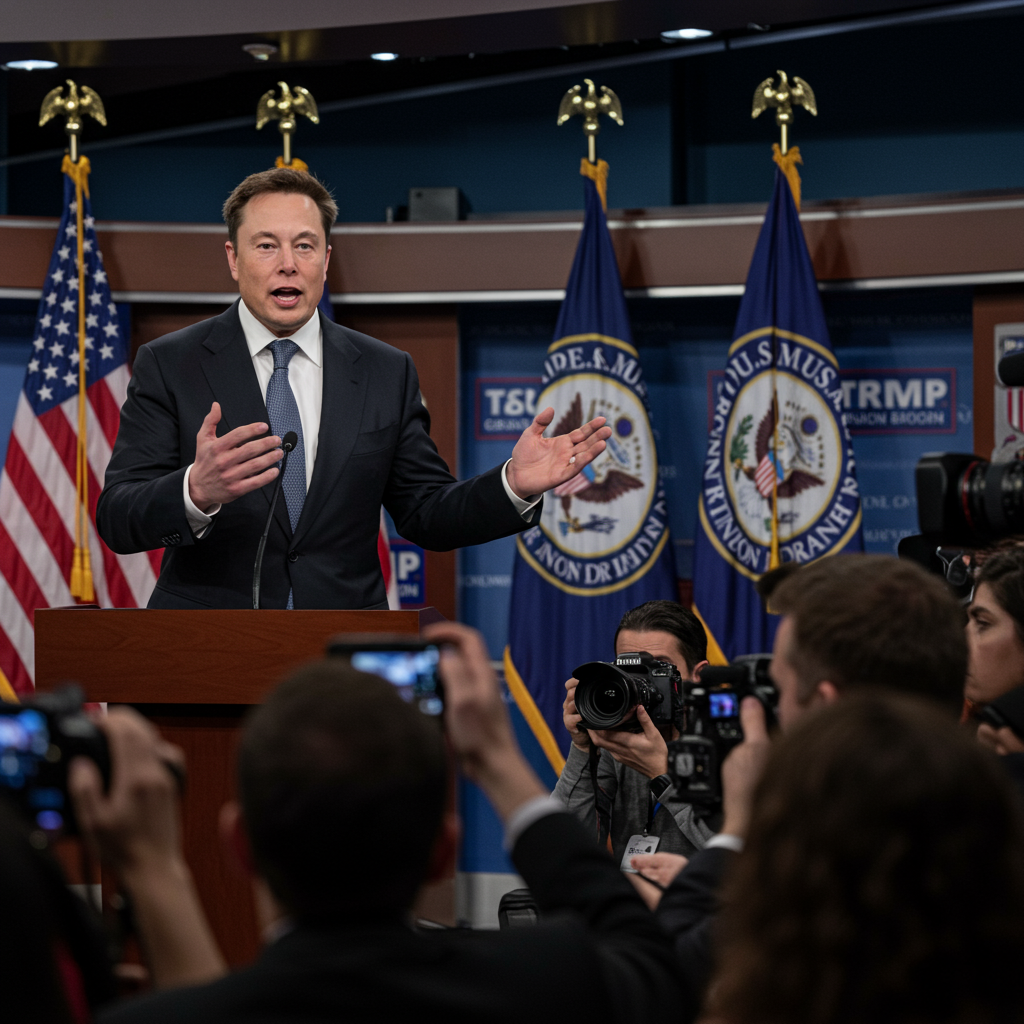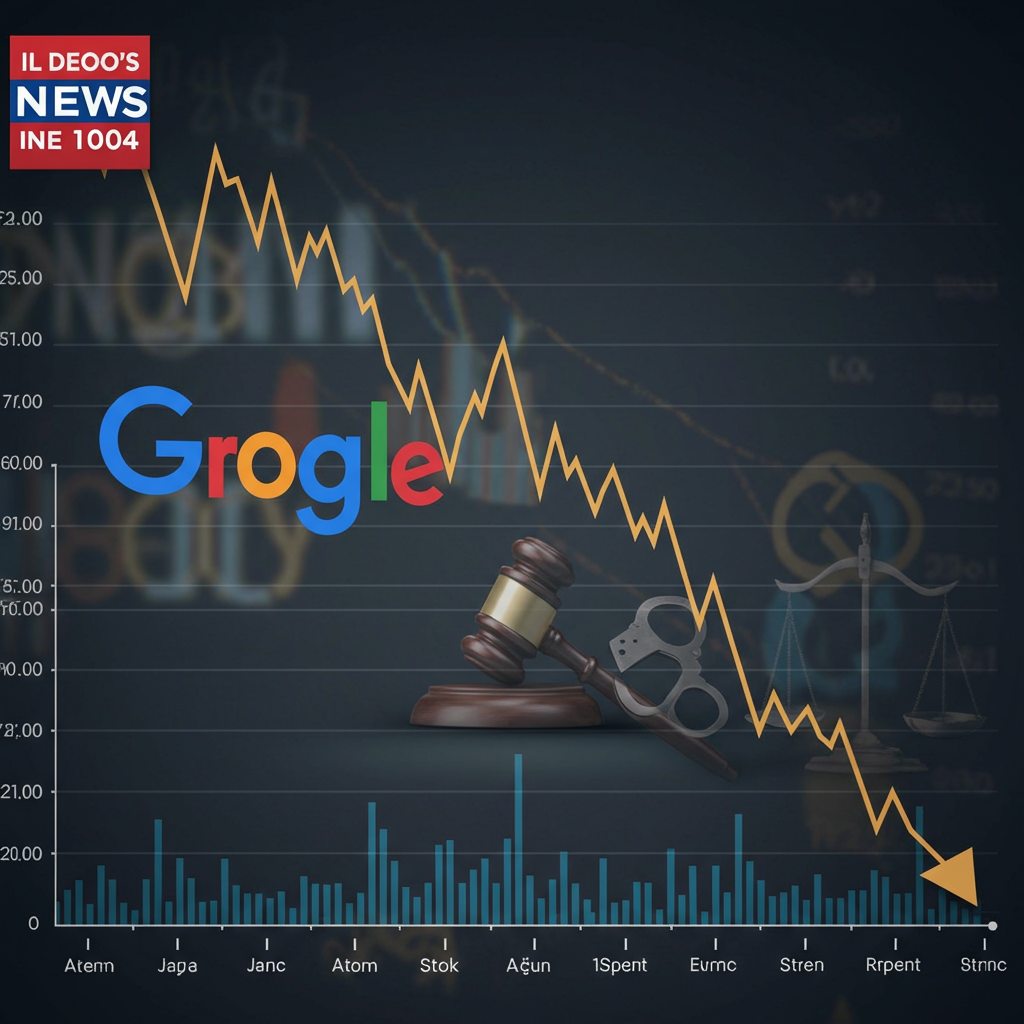Tech billionaire Elon Musk is calling on Americans to pressure their elected officials in Washington, D.C., to reject a major tax and spending bill championed by former President Donald Trump. Musk’s unusually harsh criticism marks a significant public break with Trump, just days after leaving a government advisory role focused on identifying wasteful spending.
Describing the legislation as a “disgusting abomination” and an “outrageous, pork-filled” package, Musk took to social media platform X (formerly Twitter) to voice his strong opposition. His central argument is that the bill will exacerbate the national debt, saddling American citizens with “crushingly unsustainable debt.” While Musk claimed the bill would swell the budget deficit to a staggering $2.5 trillion, other estimates suggest it could increase the deficit by approximately $600 billion (£444bn) in the next fiscal year alone.
What’s in the Bill?
The proposed legislation, which has already passed the House of Representatives and is now under consideration in the Senate, is seen as a cornerstone of Trump’s potential second-term agenda. Key components include:
Extending Tax Cuts: Making permanent tax reductions originally passed in 2017 during Trump’s first term.
Increased Spending: Significant boosts to defense spending and funding for the administration’s planned mass deportations of undocumented immigrants.
- Raising the Debt Ceiling: Critically, it would lift the government’s borrowing limit to $4 trillion. This specific provision has alarmed many fiscal conservatives.
- https://www.bbc.com/news/articles/c0j76djzgpvo
- https://www.yahoo.com/news/musk-calls-trumps-tax-spending-185056057.html
- https://www.bbc.com/news/articles/cvg5zpn9vkwo
- https://www.bbc.co.uk/news/articles/c0j76djzgpvo
- https://www.bbc.com/news/articles/c20q54vn0evo
Musk’s opposition comes shortly after his abrupt departure from the Trump administration, where he served for 129 days leading a team known as “Doge,” tasked with finding cost savings. While he previously expressed disappointment with the plan, his recent public statements represent a dramatic escalation of his criticism.
Reports suggest several specific issues may have fueled Musk’s anger. One potential point of contention is the bill’s phasing out of electric vehicle tax credits, which could impact his company, Tesla. Another reported grievance, according to Axios, involved the bill’s handling of air traffic control at the FAA, where Musk’s Starlink satellite system was reportedly denied consideration due to technical concerns and potential conflicts of interest.
White House and GOP Pushback
The Trump administration and Republican leadership have swiftly defended the bill and dismissed Musk’s concerns. The White House issued a “myth buster” statement calling any assertion that the bill would increase deficits a “hoax.” They asserted that “President Donald J. Trump’s One Big Beautiful Bill dramatically improves the fiscal trajectory of the United States and unleashes an era of unprecedented economic growth.”
Republican leaders in Congress also pushed back. House Speaker Mike Johnson, who spearheaded the bill’s passage through the House, stated that “my friend Elon is terribly wrong” and argued that Musk was “missing it.” Johnson even mentioned a prior phone call with Musk about the bill, expressing surprise and regret at his subsequent criticism. Senate Majority Leader John Thune acknowledged a “difference of opinion” but insisted the party would “proceed full speed ahead,” emphasizing that “failure is not an option.”
Deepening Republican Divisions
Musk’s high-profile opposition highlights broader internal tensions within the Republican Party, particularly among fiscal conservatives worried about mounting debt. The bill faced significant opposition from various GOP factions in the House, and similar divisions are emerging in the narrowly controlled Senate.
Kentucky Senator Rand Paul is a prominent example, having publicly stated he will not support the bill if it raises the debt ceiling, warning that the “GOP will own the debt” if they vote for it. Trump publicly criticized Paul in return, questioning his understanding of the legislation. Musk has reportedly amplified posts from Paul and other budget hawks on social media, aligning himself with their concerns.
Political Fallout and Deadline
Beyond his lobbying efforts, Musk issued a direct political threat on social media, stating that politicians who support the bill could face consequences in upcoming elections. “Shame on those who voted for it,” he wrote, adding, “In November next year, we fire all politicians who betrayed the American people.” This stance contrasts sharply with his past actions, including reportedly donating over $250 million to Trump’s campaign in the previous year.
Despite past criticisms of Musk, some Democrats, like Senate Minority Leader Chuck Schumer, have welcomed his opposition, using it to argue against the bill’s merits. Schumer reportedly suggested that if even a Trump ally like Musk opposes it, the bill must be flawed.
Trump and congressional Republicans have set an ambitious deadline of July 4th to pass and sign the measure into law. In an apparent effort to appease fiscal conservatives concerned about the bill’s spending, Trump is also reportedly asking Congress to pass a separate $9.4 billion spending cut plan, derived from the work of Musk’s former “Doge” team, targeting areas like foreign aid, USAID, NPR, and PBS. Ironically, while Musk’s core concern is the rising national debt, his opposition, if successful in blocking the bill and preventing the debt ceiling raise, could inadvertently trigger the financial crisis he warns against.




